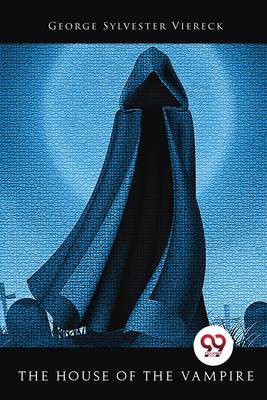
- Afhalen na 1 uur in een winkel met voorraad
- Gratis thuislevering in België vanaf € 30
- Ruim aanbod met 7 miljoen producten
- Afhalen na 1 uur in een winkel met voorraad
- Gratis thuislevering in België vanaf € 30
- Ruim aanbod met 7 miljoen producten
Zoeken
Omschrijving
The House of the Vampire is an early classic in its genre and one of the first psychic vampire novels of its time, where the vampire feeds off of more than just blood. The life-death continuum is the setting for this Victorian novel. Even when it has been transformed, what has been can still be. The House of the Vampire is energetically inventive and infused with a relish for the paranormal, especially the trappings of the dark, and it delivers a horror that we know does not exist but that could still theoretically exist and pose a threat to ourselves. The House of the Vampire is regarded as a classic among Victorian Gothic tales because it blurred the lines between fact and fiction.This 1907 book features a psychic vampire named Reginald Clarke who uses some sort of mind-invasion technique to steal the best ideas from the most gifted people around him. Reginald Clarke is a successful and remarkably haughty author. Particularly the current victim, young Ernest Fielding, makes women blush and men swoon. The poor Ernest discovers that the man he worships has somehow drawn a literary masterpiece from his very soul and claimed it as his own. Even though the narrator claims that "all genuine art is autobiography," this psychic leech continues to take advantage of those around him, leaving them as hollow, wasted shells. Ernest accompanies Ethel, his new love.
Specificaties
Betrokkenen
- Auteur(s):
- Uitgeverij:
Inhoud
- Aantal bladzijden:
- 102
- Taal:
- Engels
Eigenschappen
- Productcode (EAN):
- 9789356569331
- Verschijningsdatum:
- 22/04/2022
- Uitvoering:
- Paperback
- Formaat:
- Trade paperback (VS)
- Afmetingen:
- 152 mm x 229 mm
- Gewicht:
- 158 g

Alleen bij Standaard Boekhandel
+ 32 punten op je klantenkaart van Standaard Boekhandel
Beoordelingen
We publiceren alleen reviews die voldoen aan de voorwaarden voor reviews. Bekijk onze voorwaarden voor reviews.







